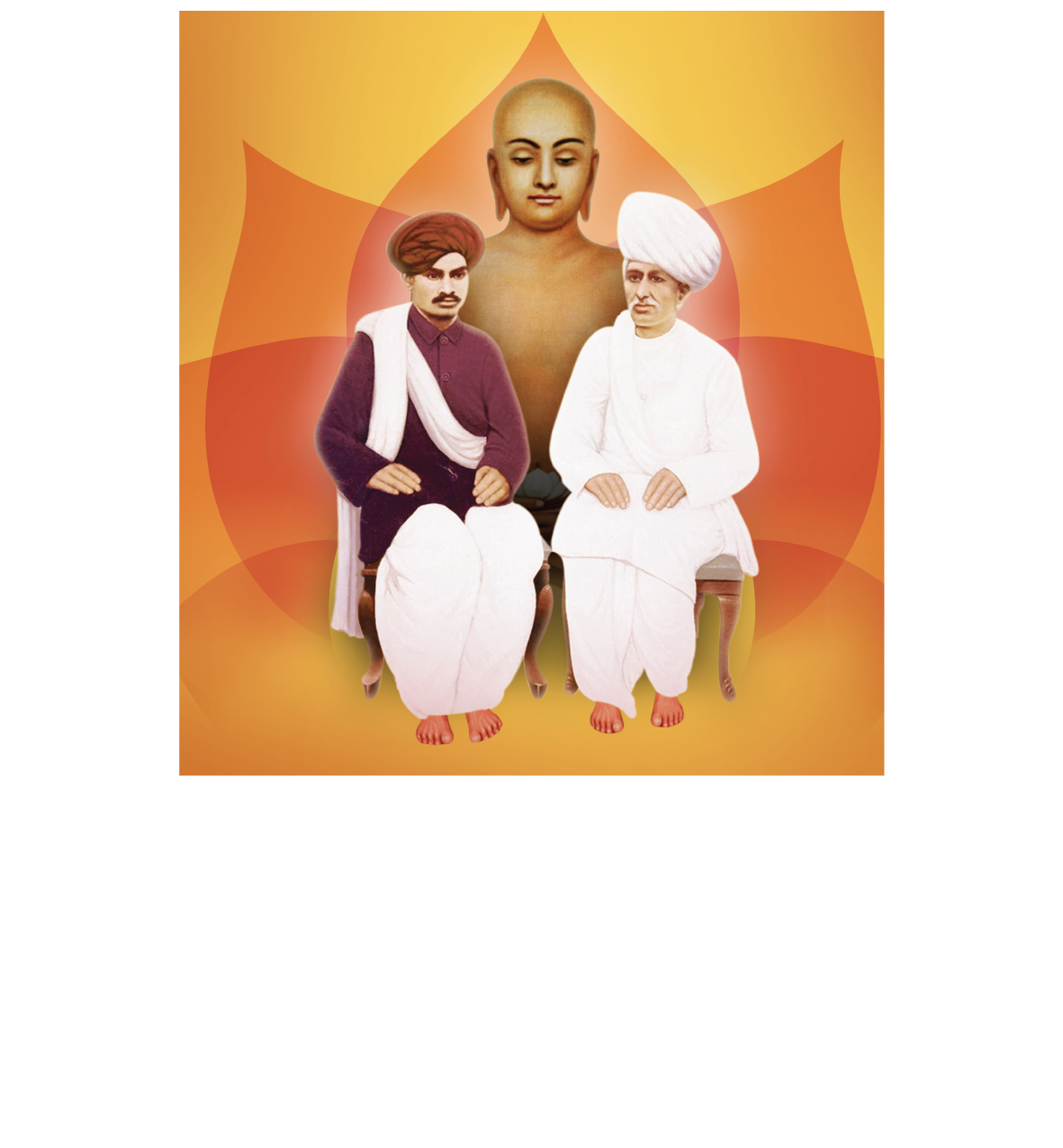The IVY swadhyay for November was special since it was held on Gyan Panchami.
Starting his discourse, Brahmnisht Vikrambhai asked several questions to the young mumukshus present.
- Why do some people have a stronger sense of understanding than others?
- Why do we not have complete knowledge
- Why is it that even when we read books we do not understand the true meaning of it?
- Why are some good at studies while others at sports?
Explaining the prime reason for this differential understanding, Vikrambhai said it was due to our Gyanavarniya Karma. When we disrespect gyan or knowledge in thoughts, words or deeds like stepping on paper, eating while reading or writing, we build gyanavarniya karma. This accumulated karma determines our understanding and perception of knowledge for our next life.
Highlighting this principle with a story, Vikrambhai said:
A king named Ajit Singh ruled over the town of Pasmapur. He sent his young son to a pundit for an education. Since the young student was the king’s son, the teacher took extra care while teaching his young ward, but unfortunately the prince could not remember a single thing. Along with this difficulty, he contracted leukemia and his whole body was covered in white spots. This made the prince sad and depressed.
In another near by town lived a merchant named Singh Das, who owned gold worth crores of rupees. He had a daughter who was unable to speak and suffered from several diseases. She was always sad, as no one was ready to marry her and her entire family was worried about her future.
An enlightened and respected Guru once visited Pasmapur and the king with his family as well as Singh Das came to seek the Guru’s blessings.
The guru started his discourse: “O Bhavya people, if you want moksh you must respect and worship knowledge. Those who disrespect knowledge by thought will not be able to discriminate between right and wrong; those that show disrespect by word will not be able to speak and those that disrespect knowledge by action will contract several diseases like leukemia. "
Listening to this, Singh Das was quick to ask why his daughter was the way she was?
The guru replied, "Hey Singh Das. Listen to this story about your daughter’s previous birth. In Khetak was a rich man with 5 sons and 4 daughters. When they were older, all the boys were sent to a Guru. But instead of studying, they would play and disrespect the teacher and if they were reprimanded, they would complain to their mother. Their mother, in turn would be angry with the teacher instead of her children.
Once in a fit of rage, she burnt all the children’s books. When her husband asked his wife, about the future of uneducated children or who would marry them? How would they earn a living? The wife replied that since he was a smart man he should teach his own kids.
In due course of time, the children grew up and were good-for-nothing. No one was willing to marry any of them because they were uneducated. The man and his wife blamed each other. In his anger, the man hit his wife with a stone on her head and she died. The same lady is reborn as your daughter in this birth.”
Listening to this narration the daughter recalled her previous birth and agreed with the Guru about the sequence of events. Singh Das now asked for a cure for his daughter. The Guru said that doing aradhna of Gyan Panchmi would cure her.
Now the king also asked about his son.
The Guru replied: "In Shripur, there was a man named Vasudev with two sons. Both of them were riding horses in a jungle when they saw a monk and paid their respects. The monk taught them about death and mortality of human life. The sons were so touched by his teachings that they took diksha. The younger brother happened to be smarter and thus became an Acharya with 500 disciples.
Once he was sleeping and many sadhus came to ask him their doubts. He started answering but in his heart he wanted to go back to sleep. He looked at his elder brother sleeping peacefully and envied him. At this moment he decided never to learn anything new nor teach anyone anything so that he could live and sleep peacefully. He took the vow of silence (Maun) for 12 years. After his death, he was reborn as the King’s son."
The prince too recalled his past birth, and affirmed the sequence of events and asked for a cure. The guru advised that doing penance on Gyan Panchami would have the desired effect.
Gyan Panchmi is the day people undertake different penances (tap) to gain gyan, crush gyanavarniya karma and respect gnan to get all the five types of gyan.
Following the guru’s advice both the girl and the prince overcame their problems, took diksha and were reborn as celestial beings (in Devlok), eventually finding their way to moksh. This story shows us the importance of Gyan Panchami.
What is Gyan?
True knowledge or the knowledge of one’s self is Gyan. When the mind becomes still, while meditating the body recedes from importance and only the pure soul gains sole, supreme significance. Remaining in this state is true knowledge. Any knowledge that doesn't help us reach self-realization is not true knowledge.
Vikrambhai ended his discourse with the profound verse:
જો હોય પૂર્વ ભણેલ નવ પણ, જીવને જાણ્યો નહિ;
તોહ સર્વ તેહ અજ્ઞાન ભાખીયું, સખશી છે અગમ અહીં;
એ પૂર્વ સર્વ કાહિયા વિશેષ, જીવ કરવા નિર્મળો;
જિનવર કહે છે જ્ઞાન તેને, સર્વ ભાવ્યો સાંભળો।
These lines highlight what Jain scriptures say - that even if we are educated with worldly knowledge but know not our soul, we do not have Gnan. Only that which teaches us about our soul and makes us peaceful is true knowledge.

